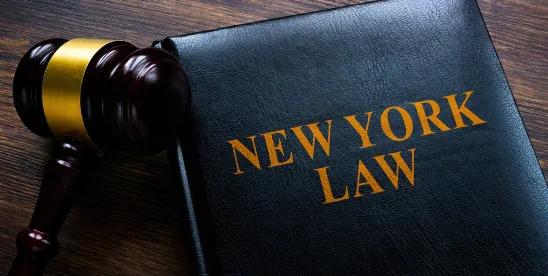In advance of June 19, 2025, the effective date of the New York State Fashion Workers Act, the New York State Department of Labor (NYSDOL) recently issued frequently asked questions (FAQs) and guidance that provide clarity and otherwise reiterate the legal obligations that model management companies, their clients, and hiring parties have under the law.
Quick Hits
- The New York State Department of Labor recently published FAQs and guidance to help employers comply with the New York State Fashion Workers Act.
- The FAQs and guidance provide clarity and otherwise reiterate the legal obligations that model management companies, their clients, and hiring parties have under the law.
- The law will take effect on June 19, 2025.
As we previously reported, the New York State Fashion Workers Act regulates model management companies and their clients, including retail stores, fashion designers, advertising agencies, photographers, and publishing companies, and provides enhanced protections for fashion models. The FAQs and guidance provide clarification on several areas of the law, which we highlight below.
Deadline for Model Management Companies to Register Their Business
While the law states that model management companies must register their businesses with the NYSDOL within one year of the effective date of the law (i.e., June 19, 2026), the guidance provides that model management companies that conduct business, represent models, or are based in New York State must register starting December 21, 2025.
Social Media and Influencer Agencies; Influencers and Content Creators
Given the continued popularity and prevalence of social media and influencers, the FAQs address whether social media and influencer agencies could be considered model management companies. The law defines “model management company” as “any person or entity, other than a person or entity licensed as an employment agency under article eleven of the general business law” that:
- is in the business of managing models participating in entertainment, exhibitions, or performances;
- procures or attempts to procure, for a fee, employment or engagements for persons seeking employment or engagements as models; or
- renders vocational guidance or counseling services to models for a fee.
While the FAQs provide some examples of when an agency could be considered a model management company, for example, “if a social media agency represents a brand and hires or connects the brand with a model or influencer to promote that brand’s product on social media,” the application of the law to these agencies will be fact-specific.
Similarly, whether a social media influencer or content creator is a “model” or a person who performs “modeling services” requires a fact-specific analysis. The FAQs provide that a “model” is a person, either an employee or independent contractor, “who performs modeling services as part of their trade, occupation, or profession.”
“Modeling services” include “performing in photoshoots or in a runway, live, filmed, or taped appearance, including on social media.” Performing modeling services “requires a model to pose, provide an example or standard or artistic expression, or represent something or someplace for purposes of display or advertisement.”
Discrimination, Harassment and Retaliation Complaints and Policy Requirements
While models can lodge complaints against model management companies, their clients, and hiring parties regarding discrimination, harassment, retaliation, or abuse with the NYSDOL, the FAQs remind individuals that they also can file a complaint with the New York State Division of Human Rights or call the statewide sexual harassment hotline to receive free legal counsel about workplace harassment at 1-800-HARASS-3.
The guidance also provides that model management companies, clients, and hiring parties must establish a company policy that addresses abuse, harassment, and any other inappropriate behavior toward models, and the policy must be shared in writing or electronically with all models. Further, the FAQs refer to the existing requirements that every employer in New York State must adopt a sexual harassment prevention policy.
Power of Attorney Agreements
The FAQs clarify that “[a]ny pre-existing power of attorney agreements related to modeling services” that are mandatory or otherwise do not meet the requirements under the law will be deemed “void as a matter of public policy” as of June 19, 2025.
Next Steps
With the effective date approaching, model management companies, their clients, and hiring parties based in or conducting business in New York State may wish to assess whether they are covered under the law, and if so, evaluate the potential impact on their businesses and familiarize themselves with the law’s requirements. This includes registration requirements for model management companies, policy requirements, pay practices, and compliance with contract requirements.
Leah J. Shepherd contributed to this article




 />i
/>i
